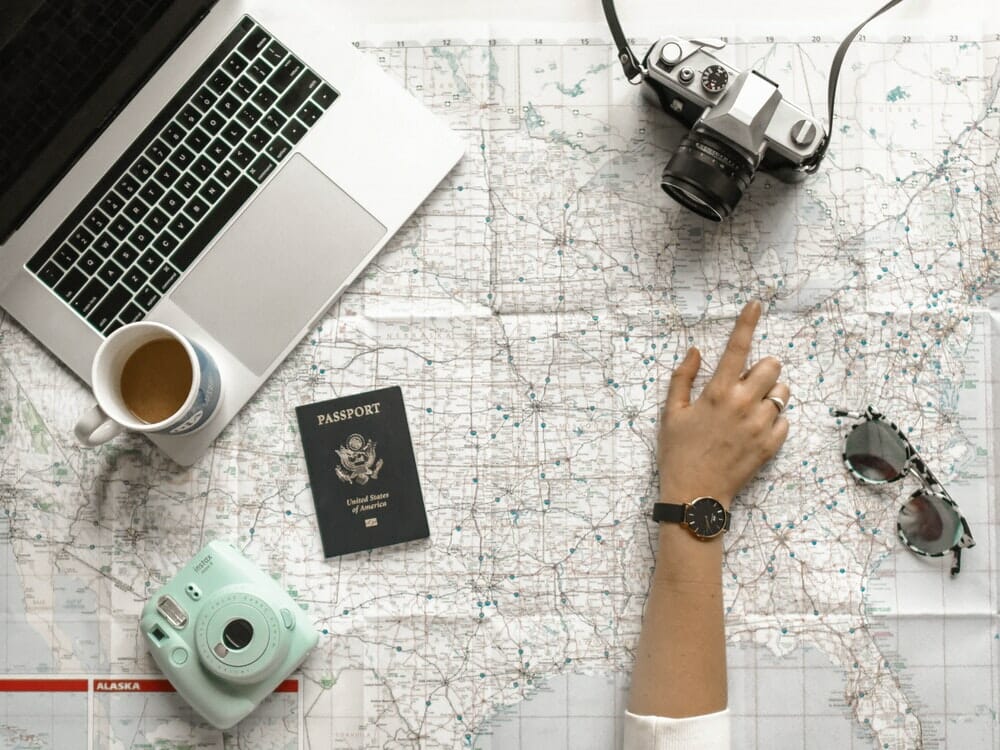Are you one of those people who finds it difficult to sleep on a plane? You’re not alone. One of the biggest challenges to healthy travel is not being able to get good in-flight rest. Sleep is one of those things that is crucial to the quality of experiences you have when starting out on your trip.
According to a new study from Expedia, to pass the time while flying, Americans said they would rather sleep (69%) than talk to other passengers on board (28%).
If you don’t get enough sleep, especially when switching time zones, you will find that your sleep cycles are off, and it can be much harder to fall into the local routine properly. You will end up yawning all day during that hiking trip while feeling restless in the dead of night.
Vane spoke with Nancy H. Rothstein, The Sleep Ambassador ®, to find out how to get better sleep on planes. Yes, it is possible!
RECOMMENDED: 5 Habits for the Health-Conscious Traveler
8 essential tip for better sleep in-flight
1. Embark well-rested
Sleep deprivation tends to be a bit of a chronic issue for many of us. Half the battle is arriving at the airport well rested in the first place. If you start your journey with a lack of sleep, the problems will proliferate.
It’s important to ensure that you tailor your sleep a couple of days before leaving to prepare yourself for the impact of a new time zone. This includes customizing your bedtime, a couple of days before departure, to that of your new location.
Doing this will shift your eating habits and ensure that once you get to your hotel or hostel, you will be ready to tackle the new time.
2. No alcohol on board
Many of us like to indulge in a glass or two of wine or beer on board. It’s tempting when the beverage service is included in the cost of your flight, and what else are you going to do for 6 hours anyway?
But drinking alcohol in the air can be very disruptive to your sleep. While it may seem like alcohol can help you fall asleep, the kind of sleep you’re getting isn’t sufficient. Because alcohol dehydrates you, it interrupts the quality of any sleep you eventually do get on board.
3. Reduce stimuli
One of the best ways to aim for a restful sleep on board is to try to reduce the stimuli around you. Whether it’s movies and entertainment, people getting up and climbing over you, meals arriving or lights turning on and off, there’s a lot for your brain to contend with.
Try to reduce the conflicting stimuli by restricting your use of the in-flight entertainment system, bringing earbuds and an eye mask to help block out sound and light, and picking your seat strategically (aim for something well away from the washrooms and kitchen) so you won’t be disturbed as often.
4. Don’t bring work in flight
Don’t plan to get started or continue working on a big project in flight. I know it can be tempting, especially for those of us with insanely busy schedules, but try to leave your in-the-air time as an opportunity to switch off from work and get some headspace.
5. Get comfortable
Allow yourself the luxury of some downtime on board by breaking out the track pants after take-off. Especially if you’ve got a long flight, changing into more comfortable clothing is important for getting good rest.
I usually make sure that I dress in sweatpants, short sleeves, and a hoodie or sweatshirt. Pick comfort over fashion or even a happy medium of both. Your mind and body will thank you later.
6. Plan so you don’t feel rushed
Feeling rushed can lead to added stresses as you travel that won’t help you get a good night’s sleep. It all starts before you leave, so make sure you prepare well in advance for that meeting, know what you’re going to pack and have an organized list to follow.
Being organized in the lead-up to traveling will also help you get good sleep the night before you fly as you can feel confident that you’ve got everything in hand.
7. Limit food intake
What you eat in the air will largely influence how you will feel during the flight and how you will be able to sleep. If you are eating foods that weigh heavily on your stomach, you’ll find that because your body is attempting to digest the food, you will feel a bit more tired, but you may not find it easier to get some sleep if your body isn’t ready.
Instead, eat a decent-sized meal before your long flight, and simply snack during the flight. This will ensure that if you do get some sleep, you will be able to awaken refreshed.
8. Stay Hydrated
In high altitudes, our body and skin often get dehydrated. Because of this, it is important to ensure that you increase your liquid intake about 24–48 hours before departure.
During your flight, don’t depend on the beverage carts for water. Bring a large water bottle of your own to stay hydrated. This will prevent grogginess when you awaken from rest on the plane.
RECOMMENDED: Drink Water: 10 Important Reasons to Drink More Water
With these eight tips, you’ll be able to fully enjoy your flight well-rested. Let us know in the comments below which tips work best for you and if you have any tips for us.

